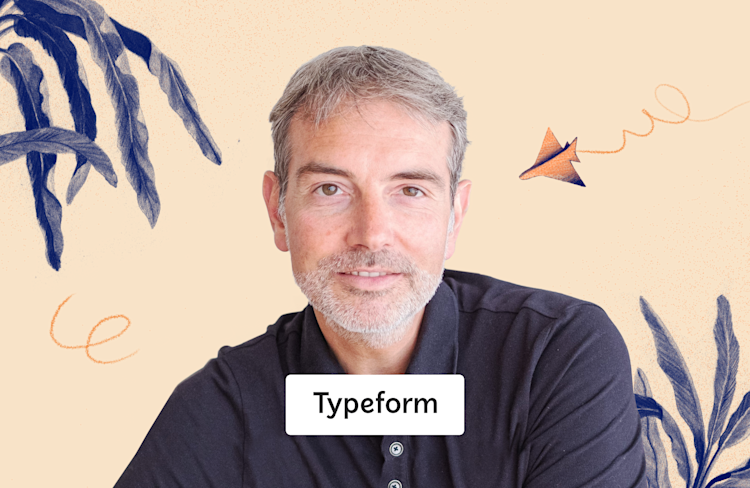How Abstract Uses Collaboration to Improve the “Work Around the Work”
Abstract knows a thing or two about collaboration. The design intelligence platform provides tools that allow designers to work together, gather feedback, and improve their work easily. That ethos doesn’t just apply to their products; the company’s culture is built on core values like iteration, curiosity, and inclusivity.
Editor's Note: The following article is an excerpt from our book Better Meetings Every Time: The Secret to More Productive Meetings in a Digital World. You can access the entire book here.
Perhaps it’s no surprise, then, that the company often turns to creative, unconventional solutions to solve its problems.
Like most workplaces that were forced to go fully remote in 2020, Abstract was feeling the effects of a fully remote meeting culture. Video fatigue among employees was on the rise, and it was getting harder to foster a feeling of camaraderie during virtual team building events.
So when Abstract’s Head of Internal Communications, Elizabeth Wilson, was planning an upcoming All Hands meeting, she decided to try something different: a virtual visit to a llama farm. “Somebody forwarded me this link where we could have the woman who owned the farm join our video call and introduce us to the llamas, show us around a bit,” says Elizabeth. “I was so nervous about it. I didn’t know how it was going to go.”

As it turned out, she had nothing to be worried about. The llama farm was a hit – and in an unexpected way, it changed the way people at Abstract approach meetings. “We realized that we can’t just approach them the same way every time,” says Elizabeth. “We need to try new things to keep people engaged. When we did something different, people were into it. Everyone was chatting and we went past our allotted meeting time.”
The virtual llama farm visit was a fun way to test the theory of shaking up meetings at Abstract, but it was also just a small part of a larger strategy Elizabeth had been working on for some time. A big part of her role at Abstract is auditing, iterating on, and working jointly with key collaborators on improving Abstract’s approach to meetings.
How information and iteration align at Abstract
In her role, Elizabeth spends a lot of time thinking about information: how it’s delivered, how it’s taken in, and which channels it needs to flow through in order to reach the right people in the right way.
As part of building a larger communications strategy, Elizabeth makes sure that company-wide meetings at Abstract remain relevant, productive, and purposeful. She’s done a great deal of work that addresses how each team – and the company as a whole – can make them more beneficial for everyone.
One main theme that Elizabeth has leaned on to inform this strategy is the idea of iteration. It is, and always has been, a deeply held company value at Abstract. Elizabeth and her team have embraced research, feedback, and trial and error to enable the company to prioritize asynchronous communication and keep meetings impactful.
Using Abstract’s values to inform communication
As a company, Abstract is focused on easing up “the work around the work” for its customers – that is, all the conversations, disparate tools, and streams of feedback that can bog down projects and get in the way of impactful work.
Internally, the focus is not much different. This year, Elizabeth and coworkers set out on a mission to improve the company’s approach to meetings. The company has been at least partially remote for years now, and being intentional about how meetings are conducted – and what warrants a meeting – felt like an important piece of the remote-first puzzle to figure out as the company continued to grow.
Additionally, launching Notebooks (a tool to help design teams manage feedback and measure results) earlier in 2021 gave Abstract the unique opportunity to build their own tool into their communication process. If they could use Notebooks to prioritize cross-functional, asynchronous communication, they knew it would have a big impact on the way they approached meetings.
In carrying out this communications audit, Elizabeth’s team looked at three main areas: their existing habits, their pain points, and research around what other companies were doing. From there, they put together a set of foundational beliefs around how Abstract should approach meetings.
Setting up foundational beliefs
Here’s where iteration came in: Elizabeth and her team put the foundational beliefs they created in front of senior leadership, and then shared them with each leader’s team to gather feedback.
It was important that these beliefs were stress-tested before anything was set in stone.
“There are so many people here who are really interested in making the work around the work super impactful,” says Elizabeth, “And the only way a culture will adopt habits is if everyone is bought in.”
After making sure her team’s proposition made sense in a real-world setting, these foundational beliefs were solidified:
Ask yourself if it can be a Notebook instead
Introducing Notebooks allowed people at Abstract to rethink the instinct to book a meeting for any new project. Creating a Notebook and tagging the appropriate people in it allows for an asynchronous first step that lets people collaborate on projects, get approvals, and make decisions cross-functionally before a meeting is needed.
Always have an agenda
When it comes to meetings, winging it rarely goes well. “If you don’t put in the prep work and give people context before, you’re wasting time,” says Elizabeth. She wanted to make it clear that creating and sharing a plan before any meeting takes place should be table stakes.
Respect time zones
Being a fully remote and increasingly global company, when a meeting is necessary, it needs to be at a time that works for everyone. This is harder to achieve the more Abstract grows geographically, which is another great reason why asynchronous communication should always be considered first.
Four day work week
After researching what other companies were doing, Abstract decided to adopt “Intermissions”, their version of a four day work week. A trend that’s gained popularity recently, especially as more workplaces have gone remote. By consolidating work into four days a week, people at Abstract can focus on being extremely intentional about their meetings and work and stave off video fatigue.
Elizabeth is also quick to point out that none of these guidelines is set in stone. In fact, Abstract has adopted a bi-annual meeting audit, wherein each team is encouraged to look at their meetings and compare them against a set of criteria and considerations:
Has this meeting always been there?
Does this meeting need to be here?
Can we shorten this meeting?
Does it actually need to be longer?
Should we add more people to the meeting?
According to Elizabeth, “We just want to make a conscious effort to really look at how we're working and whether or not we can improve.”
The outcome of iterating? Better meetings
Using an iterative approach to improve meetings across the organization has benefited each team at Abstract, but it’s also made their company-wide All Hands meetings more effective. “We now have several different formats that we alternate for All Hands,” says Elizabeth.
The first is a more formalized update from the Exec team, where they go over important company headlines and take questions from employees in a Q&A format. Another type of All Hands format is what Elizabeth likes to call a “Grab Bag,” that is, an outside-the-box meeting (like the llama farm visit) that focuses more on team building and blowing off steam.
They never would have landed on this structure without iteration; without breaking the mold to try something new and see how it went over.
Overall, Elizabeth says that Abstract’s company values will always inform the way they conduct meetings. “Three of our values are iteration, inclusivity, and curiosity,” says Elizabeth. “People embodying those values have made us more open, and when somebody says, ‘Actually, do we need this meeting?’ or has a suggestion, it’s been really beneficial.”
As for how they’ll continue to iterate in the future, Elizabeth is sure of one thing: “Our people are open and curious, and just care about how we’re meeting and showing up the best way that we can.” As long as that’s true, Elizabeth is sure that Abstract will continue to make improvements to meetings that benefit everyone.


